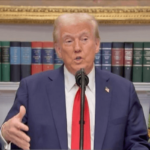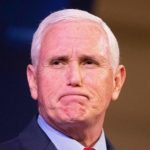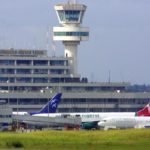“We will take actions to revoke Hong-Kong’s preferential treatment as a separate customs and travel territory from the rest of China”, President Trump said in a press conference earlier today at the Rose Garden.
Hong Kong is a special Administrative Region of the People’s Republic of China. It operates as a separate customs territory.
The President’s announcement follows the new security law passed by China’s parliament in Beijing. The United States argues that the new law strips Hong Kong of its autonomy and can therefore no longer be regarded as a separate administrative region.
China has been facing mounting criticism over the new security law, which would make it a crime to undermine Beijing’s authority in Hong Kong. The resolution would see China installing its own security agencies in the region for the first time.
The law is expected to criminalize the following;
- secession – breaking away from China
- subversion – undermining the power or authority of the central government
- terrorism – using violence or intimidation against people
- activities by foreign forces that interfere in Hong Kong
In 1992, the United States Congress enacted the United States-Hong Policy Act, or more commonly known as the Hong Kong Policy or Hong Kong Relations Act to allow the United States to continue treating Hong Kong separately from Mainland China for matters concerning trade export and economics control after the 1997 handover.
Read also; Breaking News: President Terminates US Relation with WHO
On 1 July 1997, the lease of Hong Kong Territory from China by the United Kingdom came to an end, and the UK handed over the territory back to China to be administered in accordance with the Sino-British Joint Declaration treaty signed between the United Kingdom and China on 19 December, 1984.
The British Government declared that it would hand over Hong Kong to China on 1 July 1997, and the Chinese Government also declared its basic policies regarding Hong in the document.
In accordance with the “one country, two systems” principle agreed between the UK and China, the socialist system of China would not be practised in the Hong Kong Special Administrative Region (HKSAR), and Hong Kong’s previous capitalist system and its way of life would remain unchanged for a period of 50 years until 2047.
China has been accused of violating the agreed “one country, two systems” principle by interfering in the internal affairs of Hong Kong, and the enactment of the new security law was the greatest interference of all. In the words of President Trump during the press conference, “China has replaced its promised formula of one country two systems, with one country one system”.
Read more; 2020 Budget: Nigeria to Spend N2.95 trillion on Debt Servicing
China says that it is protecting its national security in accordance with the requirements of Article 23 of the Basic Law, which was part of the basis for the Hong special administrative region arrangement.
The article says, “The Hong Kong Special Administrative Region shall enact laws on its own to prohibit any act of treason, secession, sedition, subversion against the Central People’s Government, or theft of state secrets, to prohibit foreign political organizations or bodies from conducting political activities in the Region, and to prohibit political organizations or bodies of the Region from establishing ties with foreign political organizations or bodies.”
In February 2003, the HKSAR government proposed the National Security (Legislative Provisions) Bill 2003 to the Legislative Council which aimed to amend the Crimes Ordinance, the Official Secrets Ordinance and the Societies Ordinance pursuant to the obligation imposed by Article 23 of the Basic Law of the HKSAR of the People’s Republic of China and to provide for related, incidental and consequential amendments.
Read; A Beginners Guide to Investing in the Nigerian Financial Market: Contractual Savings & Mutual Funds
The proposed bill caused considerable controversy in Hong Kong and a massive demonstration on 1 July 2003. In the aftermath, the bill was withdrawn after it became clear that it would not get the necessary support from the Legislative Council for it to be passed. The bill was then shelved indefinitely.
The economy of Hong Kong is a highly developed free market economy characterized by low taxation, almost free port trade and well established international financial market.
The economy had been battered through the major part of 2019 because of persistent protests about perceived Chinese interference on the Island, and the Coronavirus pandemic has put more pressure on the economy since the start of 2020.
The economy has been in recession, with GDP contracting by -2.8%, -3% and -8.9% in Q3 2019, Q4 2019 and Q1 2020 respectively. The removal of the preferential treatment by the United States will further exacerbate the economic woes of the Island, putting the status of Hong Kong as a major financial hub in jeopardy.
Read further; Historic SpaceX Launch Scrubbed due to Bad Weather
U.S. goods and services trade with Hong Kong totaled an estimated $66.9 billion in 2018. Exports were $50.1 billion; imports were $16.8 billion. The U.S. goods and services trade surplus with Hong Kong was $33.4 billion in 2018. Hong Kong is currently the USA’s 21st largest goods trading partner.
This action by the United States will possibly make no difference to the stated China policy on Hong Kong.
Written by;
Nnamdi M.






















































